"Our Child is Sweet, Clever, and Smart, and Also of Short Stature": Parents of Baby Raphael Speak Out
"Your child will look like an alien and suffer harassment all his life," doctors warned Orel and Orit Harel, but they never considered giving up. Today, Raphael is 19 months old, and his parents are sure: "We brought him into the world with the belief he will feel equal among equals, now the task is ours."
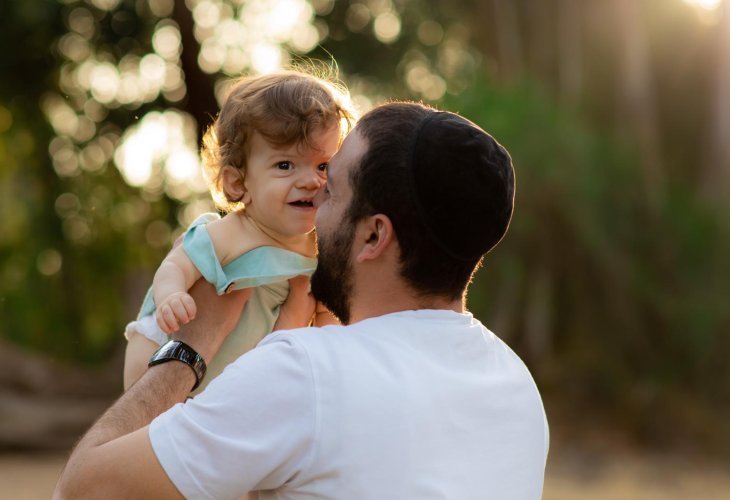 Orel and her sweet son Raphael (Photo: Lilach Tuina)
Orel and her sweet son Raphael (Photo: Lilach Tuina)Orel and Orit Harel are young parents to two sweet little children – Adele (3 and a half) and Raphael (1 year and 7 months). Outwardly, their life appears completely normal – Orel and Orit go to work every day, the children are sent to kindergartens, and their daily routine seems quite ordinary. However, those who know what they've been through in the past two years understand just how far from ordinary it really is. Nothing is taken for granted.
 (Photo: Israel Yonaib)
(Photo: Israel Yonaib)
"This is a Test from Heaven, and We Can Overcome It"
"It all started in the 30th week of Raphael's pregnancy," Orit recounts, "I was in the seventh month, after a generally normal pregnancy. Although in the second scan they saw that the child's head was slightly large, the only recommendation was to conduct an additional scan focused on the head area in the 30th week. I was so certain everything was fine that I went to the scan alone, thinking that in 15 minutes I would be done and back to clients at my clinic."
"But then I began to realize something was not right. The doctor lingered, attempting to move the fetus to see the head and arms better, taking more and more pictures, and then started asking questions about my height, my husband's, and our parents'. Even then, I never imagined she was about to tell me our child would have dwarfism. Only after she finished the examination did she explain to me plainly: 'Your child will suffer from a condition called 'achondroplasia' – dwarfism.' It was the first time I heard of such a disease, and the first time I learned that a child of short stature can be born to tall parents. She continued, explaining that it's rare, but happens with a frequency of one in 24,000 births. She added: 'You just fell in the statistics.'"
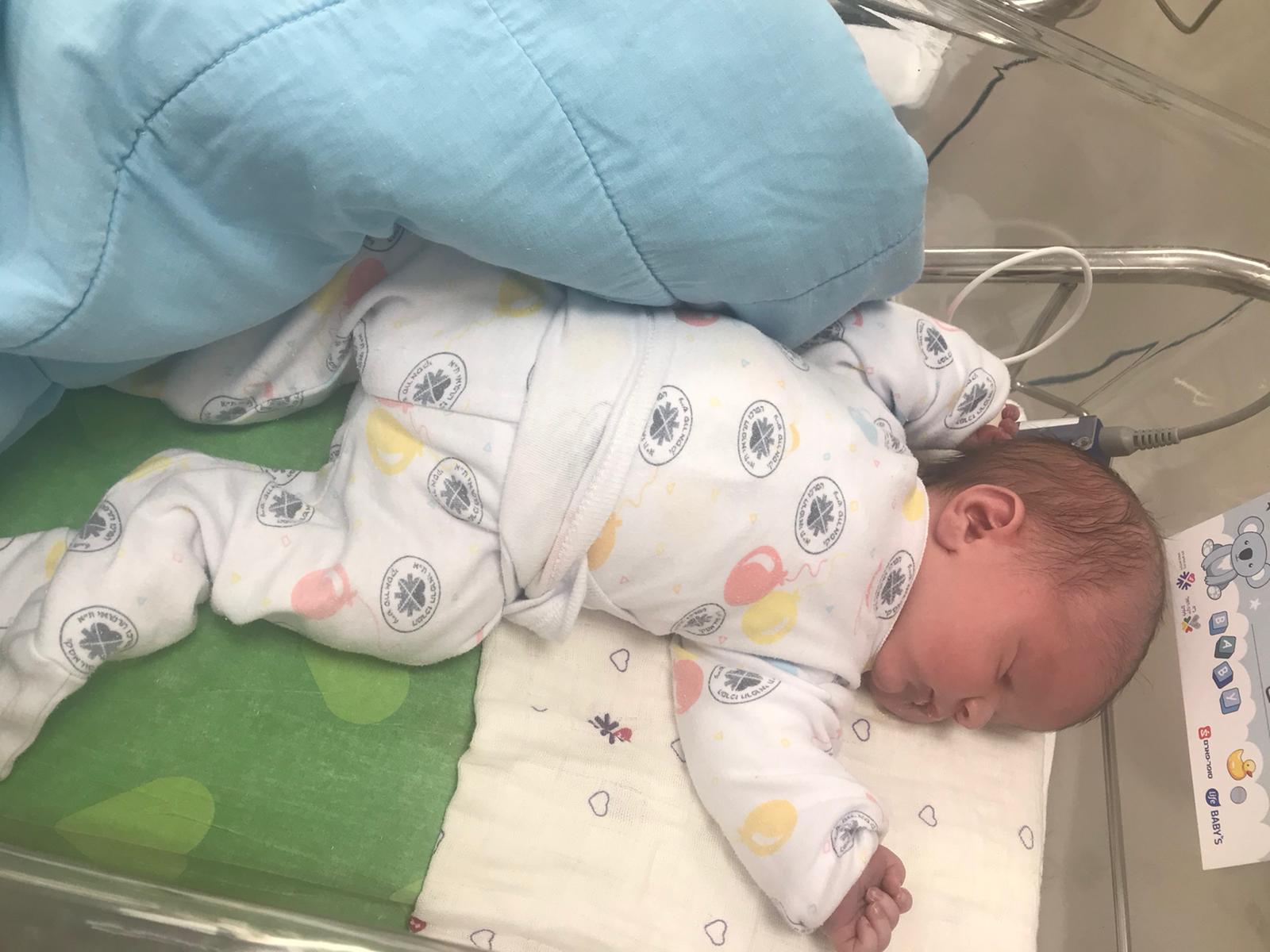 Raphael Harel
Raphael HarelWhat was your reaction?
"I burst into tears, sobbing uncontrollably, unable to speak. I called my husband at some point, asking him to come to the clinic, unable even to explain why. Of course, he dropped everything and came immediately. Later, he told me that hearing how I was crying, he was convinced we had lost our child. At the clinic, the doctor explained to him everything she had described to me – that the child to be born would have rounded thigh bones, star-shaped hands, a very large head, a sunken nose bridge, and a bulge at the forehead. The message was clear – it was a hideous and deformed child. At the end of her words, she strongly recommended terminating the pregnancy, without any consultation or questions asked. She said: 'You're a young couple, you have a healthy daughter at home, why bring such challenges? The child will be miserable and suffer from an unusual appearance.'"
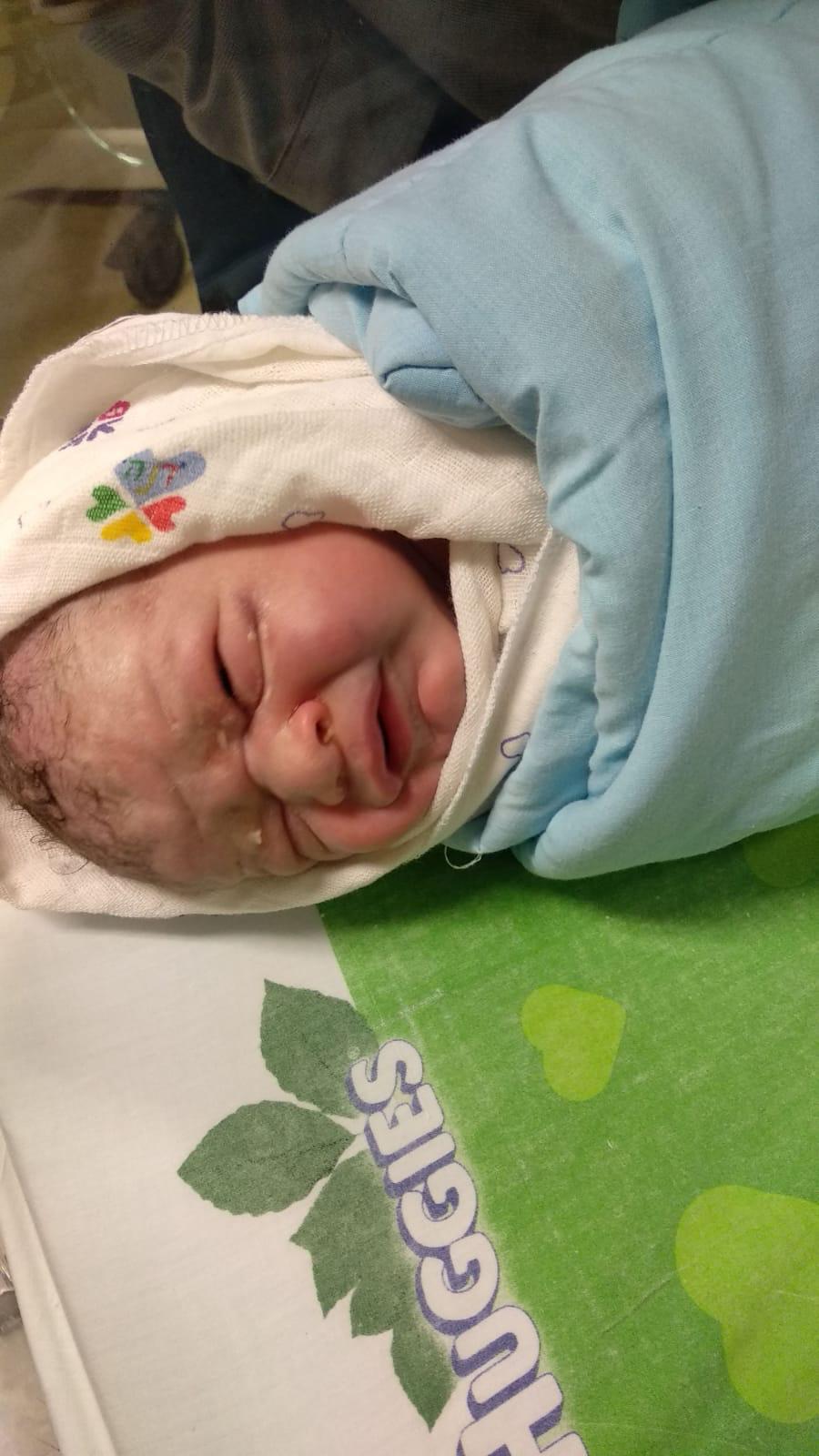
Orit, in emotional turmoil, couldn't respond, but Orel remained calm and assertively replied: "Before anything else, we want to hear another opinion and understand what dwarfism is, what the life expectancy is, and the level of suffering, if any. And regardless, even if the child has a short stature, he has a place in this world, and there's no reason to deny him life. We will do our research and come to our own decision, certainly not here."
When speaking with Orel now, he points out that from the very first moment he wasn't frightened. "In recent years, with Hashem's blessing, I've strengthened my faith and attended Torah lessons, through which I understand a little about the purpose of the world. When they explained to me that the disease our son would have is purely external, I was not worried. I thought perhaps he would look different, but he could live and fulfill commandments like any other person, and the Gemara says it's enough for a person to come into this world just to respond 'Amen' once. This understanding was enough for me. After all, I'm not bringing the child into the world for me; that's not the goal."
What was difficult for you in dealing with this?
"The only thing difficult for me was that it was hard for Orit. When she is sad, it affects the life of the entire family. Therefore, I tried to encourage her constantly, provide her with tools to lift her spirits, and believe with her that this test was sent to us from Heaven, and we can withstand it."
"How Could We Take a Life?"
Orit emphasizes that it was clear to them from the beginning that they were continuing with the pregnancy, but that wasn't clear to the doctors. "Every time I entered a doctor's room, they had to ensure I was sure about wanting to bring the child into the world and how aware I am of the tough life awaiting him. But I learned to be strong, and the only thing I told the doctors was that I was at peace with the decision, that they should focus on their tasks and nothing else."
Why do you think it was so important for them to express their opinions?
"I asked myself that as well, and I have no answer. Perhaps it's an aspiration for perfection; some also told me that these are children the state needs to pay a lot for, so they try to prevent their birth. I really don't know. But the most horrifying thing is that we reached a doctor at week 37, just before birth, and he expressed very harsh views, clarifying that we could still renounce the child. We explained to him that at week 37 it's literally ending a living being, and there's no way on earth we'd do that."
And Orel adds: "I am often asked if I am angry at the doctors who made us understand as if we have an alien child – yes, they used exactly that term, while reality is far from it. I reply that I'm not. I am not angry; they are merely messengers. But they must remember their role is to heal, that's the only thing required of them, and if they cannot heal, then they shouldn't give opinions. They should present the data and information and leave us to make the decision."
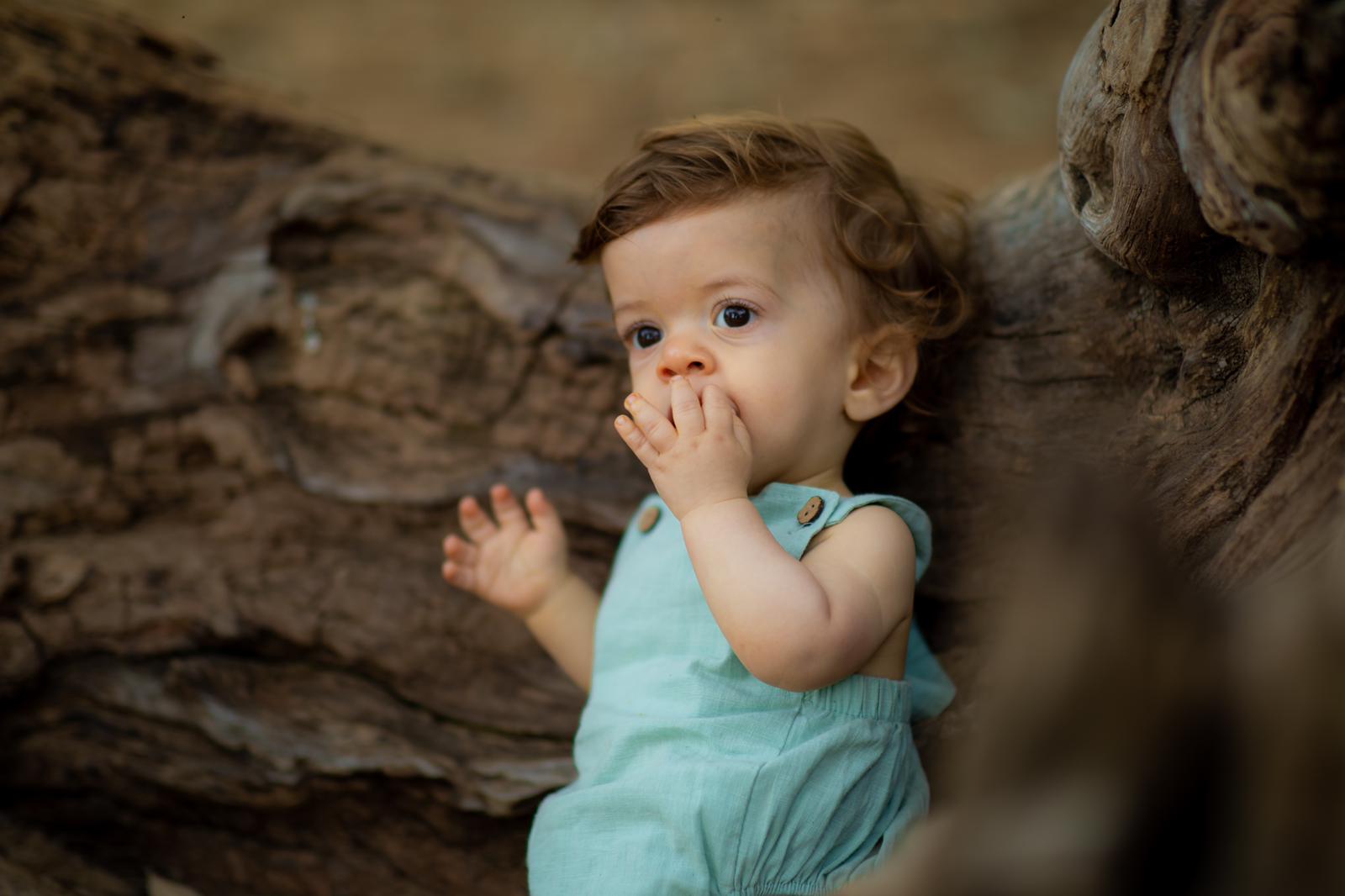 (Photo: Lilach Tuina)
(Photo: Lilach Tuina)Indeed, the decision was clear, but it didn't prevent harrowing thoughts. "I cried a lot during that time," recalls Orit, "I kept going on YouTube, watching videos and pictures of people with short stature, and even read one day about a short-statured child who ended his life because he was ostracized. I burst into tears – 'What will be? How will I raise my child and give him strength? What if they mock him?'"
What gave you strength during those days?
"First of all – faith in Hashem, and understanding that my fetus is also a creation of *Hashem* who deserves to live in this world just like all of us. Rabbi Nachman says: 'I will never place before you an obstacle you cannot overcome.' I reminded myself this was an obstacle, maybe not a simple one, but not so terrible either. It's true that my child will face challenges in life, but who said that children who look regular have perfect lives?
"Later, I also met with someone of short stature who had just completed a degree in optometry. She is a successful young woman, giving lectures and working. After meeting her, I asked myself: 'How can one take the life of such a child? Who am I to do such a thing?' I reminded myself each time there's no shortage of parents with children in hospitals who would be happy if their children only suffered from dwarfism."
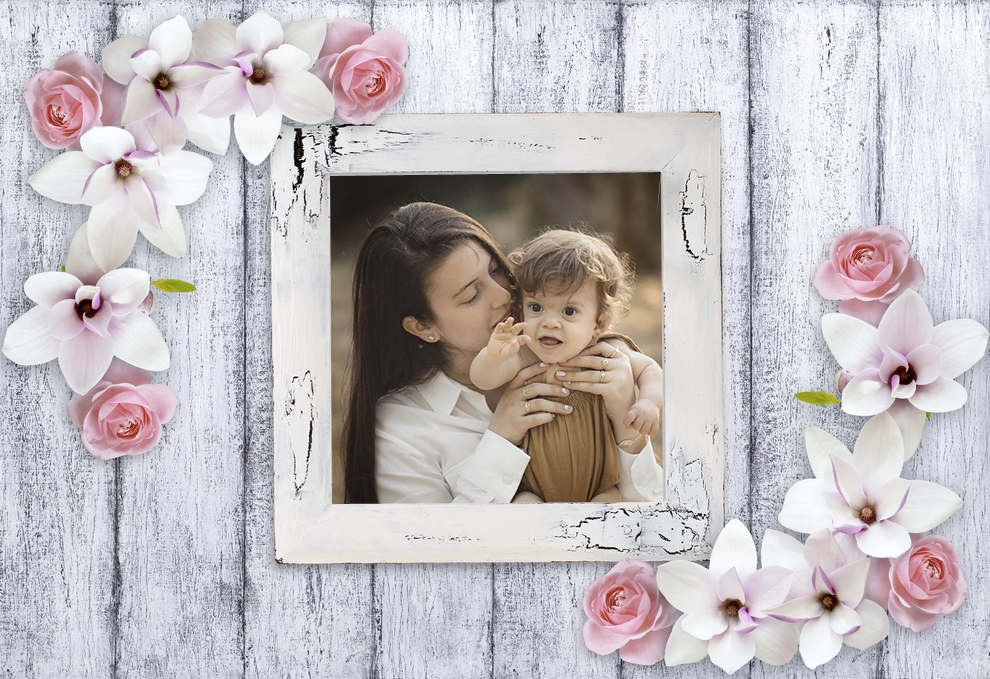 Orit and her son Raphael (Photo: Lilach Tuina)
Orit and her son Raphael (Photo: Lilach Tuina)Around that time, Orit went to a rabbi she usually consults with. "The truth is, initially I was disappointed because I hoped the rabbi would say the doctors were wrong and we were going to have a normal child, but that wasn't the case. The rabbi did not try to contradict the doctor's words, but he explained to us that before a person comes into this world, they sign their mission, doing so with understanding and awareness. We are lucky to receive a gift, and not everyone is so lucky. The rabbi also promised me that if only I embrace the child with love, I’ll eventually see how he will blossom, and we'll get great joy from him."
And what about your faith during that time? How did it affect you?
Orit emphasizes that while she doesn't define herself as religious, she is traditional and a strong believer. "True, over time, the thought crossed my mind often – 'Why me? What wrong did I do for this to happen to me?' To me, that was a lapse in faith, but as time went on, the doubts ceased, and the only thing I continued to say to Hashem was: 'If this is what You gave me - then I will face it.'"
The Goal: Empowering
Ultimately, Raphael was born in the ninth month, through emergency C-section. "I think half of the doctors at Ichilov assembled around us to see the dwarf baby," describes Orit, "We felt like the center of attention, and when Raphael was out, I told the doctor I wouldn't leave the room until they showed him to me. She showed him to me for a moment, and it was an absolute surprise because, after all the preparation they made us undergo, I expected to see a very deformed and ugly baby, with a huge head and tiny body. To my amazement, he was extremely sweet, very similar to my eldest daughter when she was born. Only later did my husband show me a picture, and I noticed his nose bridge was slightly sunken. But nothing more than that."
In the following months, Orit discovered she had a wonderfully sweet baby. "Raphael is a calm, smiling, and very sweet baby. He had a slight developmental delay, but it was not significant at all, and we took him to physiotherapy once a week. Beyond that, he is a completely normal child, and now at 19 months old, he is already starting to take first steps, babbling, laughing, and brings joy to all of us. From our perspective, we don't ease up on him at all; we want him to be exposed to the world properly, understand that being short might be unpleasant, but it's manageable."
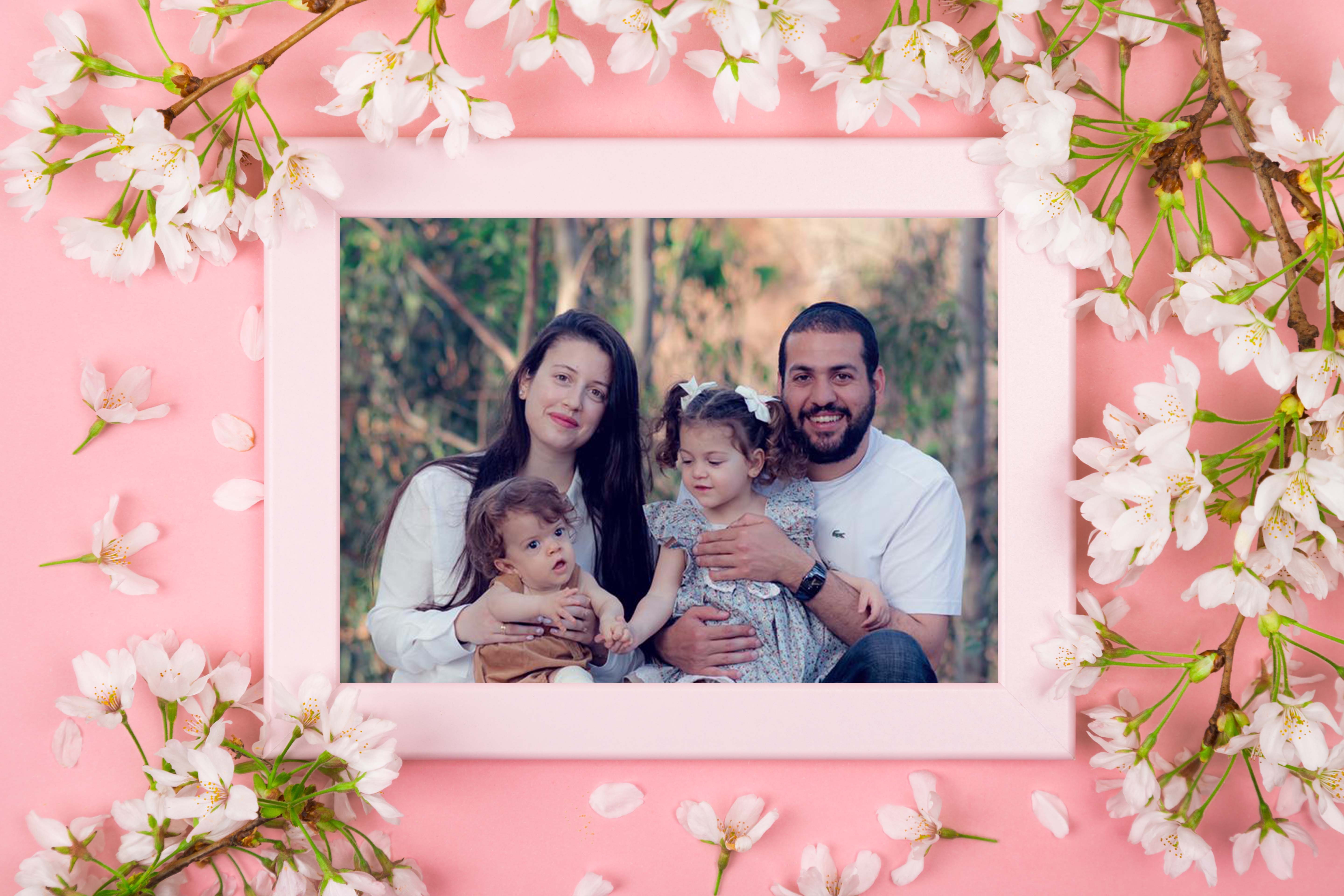 (Photo: Lilach Tuina)
(Photo: Lilach Tuina)As time goes by, is the dwarfism more noticeable?
"Definitely yes, when Raphael was a small baby, it was hardly noticeable, but now it's hard to ignore. Raphael still wears toddler clothes sized 3-6 months, he can't reach objects placed on low children's tables, and he is incapable of climbing even small chairs. But the truth is, I no longer feel pain or sorrow. I am sure he has a happy life, and with all these difficulties, he will learn to cope. We even learned to laugh at the situation, as we sometimes note that Raphael is a frugal child. We don't need to change his clothes every season, as last year's outfits still fit him..."
And how do people around you react when they meet Raphael?
"Many are unaware of his condition, so they sometimes ask questions like: 'How old is he?' and then comment that he looks small for his age. Sometimes people look at him, and I sense a feeling of pity, which is the last thing I want to develop. But overall, the people close to us have gotten used to it and treat him completely normally."
Do you think about the future sometimes?
"Of course, how could I not? For me, Raphael is a king, and he will always be amazing and perfect. But I know that the social interactions won't be easy. I just recently talked with a good friend who also has a short-statured child, nine years old. She told me he asked for surgery to lengthen his limbs. It's a very difficult surgery, involving breaking the limb bones and lengthening them with metal rods. For an entire year, the child must be completely immobilized, yet he requested it, because the social struggle is incredibly hard for him. It shook me. I know I too will face similar dilemmas and tough moments in the future, but for now, I can only say we'll always aim to confront challenges with Raphael, give him family support, and respect his wishes. How this will exactly unfold? I prefer not to dwell on it. For the moment, he is a tiny baby, and it seems excessive to plan school for him at this point."
You speak about your story with such openness, what led you to share it?
"The truth is, I started sharing the story when Raphael approached half a year old. By then, people were starting to notice his short stature, and each time I was required to provide explanations. Sometimes I found myself stammering, sometimes uncertain how to share it right. Eventually, I decided to publish a post on Facebook, naturally talking about our child having dwarfism, the challenging journey during pregnancy, and our wholehearted decision to bring him into the world, with faith that he'll feel equal among equals, even if his appearance is different. I concluded by emphasizing that it's important everyone accepts and treats him normally because he's genuinely bright, clever, and wise."
Orit shares that she didn't expect the post's overwhelming response. "I do not regret it for a moment," she adds, "I am certain that if even one mother finds herself in doubt, and thanks to the post or this interview, makes the right decision – I have already done my part."

